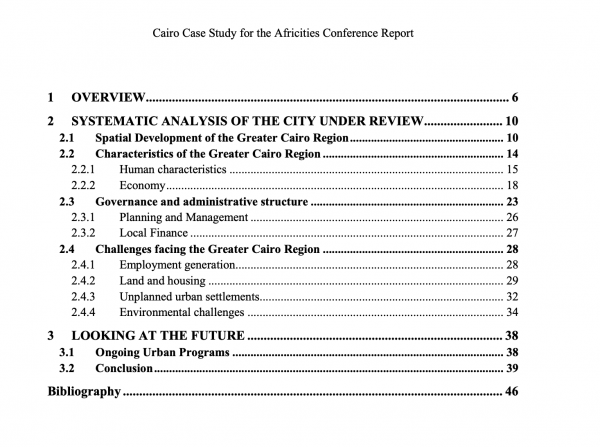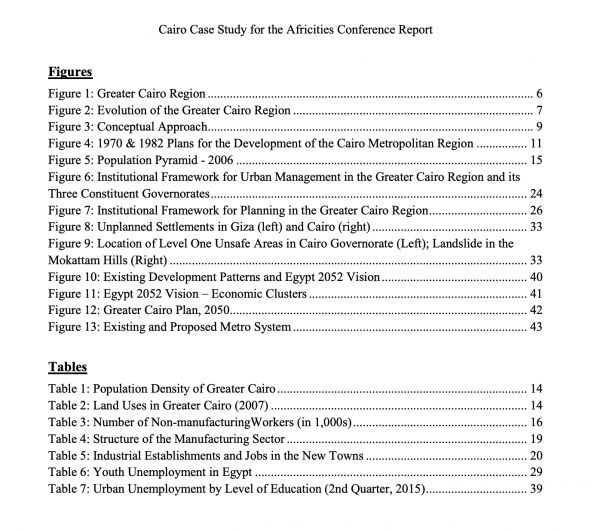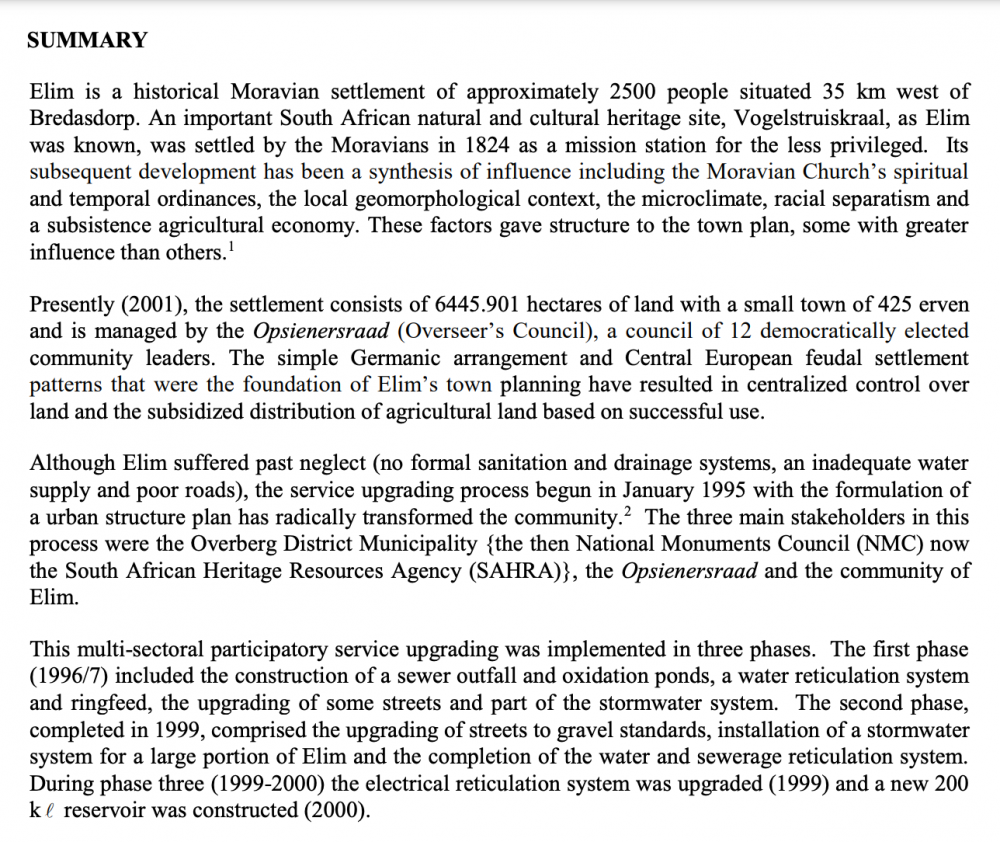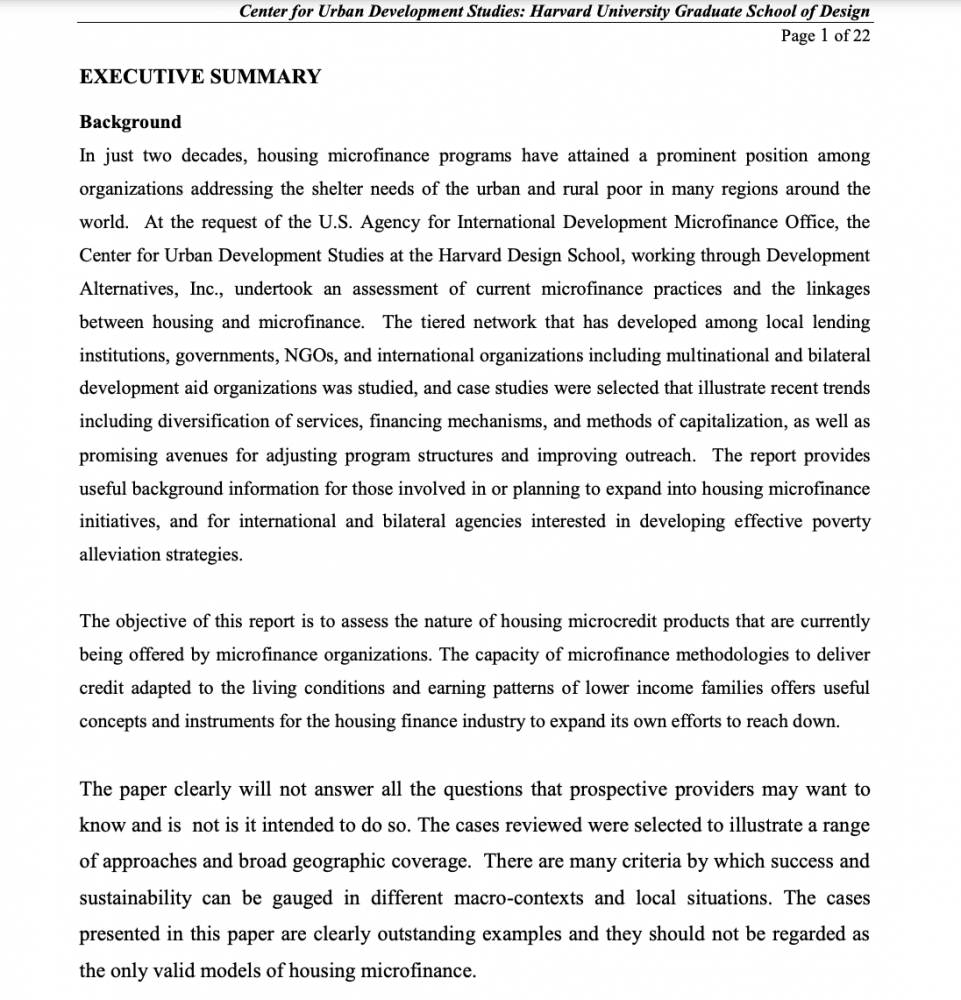Abstract
Beginning in July 2015, Dr. Mona Serageldin, Daniel Tsai, and Barbara Summers from I2UD prepared presentation materials for the 7th Africities Conference, held on November 29, 2015, in Johannesburg, South Africa.
Conference presentations include an Inception Report, and workshop documents and agendas from July 2015, in French and English. Case studies from July and November 2015 discuss Cairo and Khartoum. A final presentation, “Looking Back, Looking Forward: Johannesburg,” was given by Phillip Harrison (SA Research Chair for Spatial Analysis & City Planning of Johannesburg).
Related I2UD Projects
Related by – City or Community Case Studies
“Planning for Climate Adaptation Program” for Four Dominican Republic Municipalities: Santo Domingo National District, Santiago de los Caballeros, San Pedro de Macoris, and Las Terrenas, 2015
“National Urban Policies in Arab States,” Regional Assessment and Case Studies on NUPs in Egypt, Jordan, Morocco, Saudi Arabia and Sudan, 2014
“Arusha Urbanization Strategy and Urban Development Plan,” Development Strategy for Arusha Municipality, Tanzania, 2009-2012
ICLRD: Urban Reconciliation Case Studies for Public Housing Estates in Ireland and Northern Ireland, with Study Profile on the Basel Metropolitan Area, 2010-2012
Executive Training Course 2006: “Strategic Planning for Sustainable Infrastructure Development,” Workshop Curriculum with Case Studies, Pretoria, South Africa, 2006
IEP 2003: “Infrastructure and Partnerships for Local Economic Development” in Pretoria and Bloemfontein, South Africa, International Education Programs, 2003
IEP 2002: “Strategic Planning for Local Development & Urban Revitalization,” Program Overview, International Education Programs, 2002
Workshops on “Strategic Planning and Management of Municipal Infrastructure Programs,” from Review of Grant-Funded MIPs in South Africa, May-June 1999
“Housing Microfinance Initiatives,” Case Study for USAID Microenterprise Best Practices Initiative, 1999-2000
ITP 1998: “The Role of Public/Private Partnerships in Urban Improvements,” with Case Studies on Kreuzberg, Berlin (Germany), GIS Mapping on Cape Cod (US) and the Maarouf Quarter of Cairo (Egypt), 1998
“City of Szczecin Capital Improvement Program,” Case Studies for Technical Assistance Program, Szczecin, Poland, 1996
ITP 1994: “Revitalization in Older Urban Spaces,” Upham’s Corner, Dorchester, Boston, South Boston, and New Haven (US); Montpellier (France); and Cork (Ireland) with Case Studies, International Education Programs, 1994
“Introduction to Local Finances,” Teaching Monographs and Case Studies on Finance Management, by Visiting Lecturer David C. Jones, 1994-1999
Related I2UD Photograph Galleries





